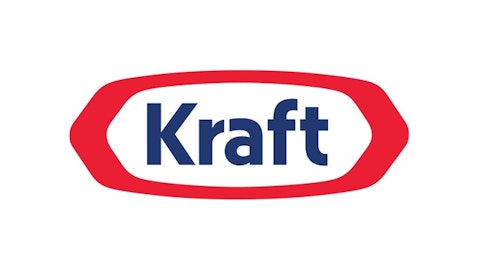Corporate insiders are widely-known for trading in the fashion of contrarian value investors, which might explain why their purchases tend to outperform the broader market on aggregate. Trying to time the market is a fool’s game, no one is an expert in market timing and insiders are no exception. Statistics and different historical charts reveal that insiders tend to aggressively buy their companies’ stock near bottoms, when the market is heavily dumping it, and aggressively cash out near highs. For that reason, many individual investors tend to look at insider trading behavior when planning major purchases, and it pays to see how insiders feel about their companies’ future prospects and developments. The Insider Monkey team identified three companies that witnessed noteworthy insider buys this week, so this article will examine the insider buying activity at the companies in question.
Most investors can’t outperform the stock market by individually picking stocks because stock returns aren’t evenly distributed. A randomly picked stock has only a 35%-to-45% chance (depending on the investment horizon) to outperform the market. There are a few exceptions, one of which is when it comes to purchases made by corporate insiders. Academic research has shown that certain insider purchases historically outperformed the market by an average of seven percentage points per year. This effect is more pronounced in small-cap stocks. Another exception is the small-cap stock picks of hedge funds. Our research has shown that the 15 most popular small-cap stocks among hedge funds outperformed the market by nearly a percentage point per month between 1999 and 2012. We have been forward testing the performance of these stock picks since the end of August 2012 and they have returned 102% over the ensuing 38 months, outperforming the S&P 500 Index by more than 53 percentage points (read more details here). The trick is focusing only on the best small-cap stock picks of funds, not their large-cap stock picks which are extensively covered by analysts and followed by almost everybody.
Prospect Capital Corporation (NASDAQ:PSEC) has seen three top executives buy shares thus far this week. To begin with, Brian H. Oswald, Chief Financial Officer, Chief Compliance Officer, Secretary and Treasurer, purchased 25,000 shares on Wednesday at a price of $6.77 per share, and currently holds 465,000 shares. Co-founder, President and Chief Operating Officer M. Grier Eliasek snapped up 30,000 shares on the same day at a cost of $6.79 per share, boosting his overall holding to 352,196 shares. Last but not least, Chairman and Chief Executive Officer John F. Barry bought a whopping 150,000 shares on Wednesday for $6.71 apiece and currently owns 6.18 million shares. The financial services company that lends to and invests in middle market privately-held companies has seen its shares decline by 17% so far in 2015. Prospect Capital Corporation (NASDAQ:PSEC) generates most of its revenue from interest income on the debt securities owned, dividend income on common or preferred stock owned, and other fees related to the structuring of new deals. The company’s investment income for the third quarter totaled $200.25 million, down from $202.02 million reported last year. Meanwhile, the sustained decrease in oil prices has put some weight on the Business Development Companies (BDCs) with exposure to energy-related sectors, including Prospect Capital. Nevertheless, shares of Prospect Capital are trading at an eye-catching trailing price-to-earnings ratio of only 8.77, which compares with the ratio of 22.71 for the S&P 500 Index. Scopia Capital Management, founded by Matt Sirovich and Jeremy Mindich, holds a 2.26 million-share position in Prospect Capital Corporation (NASDAQ:PSEC) as of September 30.
Follow Prospect Capital Corp (NASDAQ:PSEC)
Follow Prospect Capital Corp (NASDAQ:PSEC)
Receive real-time insider trading and news alerts
Let’s head to the second page of this daily insider trading article, where we discuss the insider buys registered at Corrections Corp Of America (NYSE:CXW) and Kansas City Southern (NYSE:KSU).





